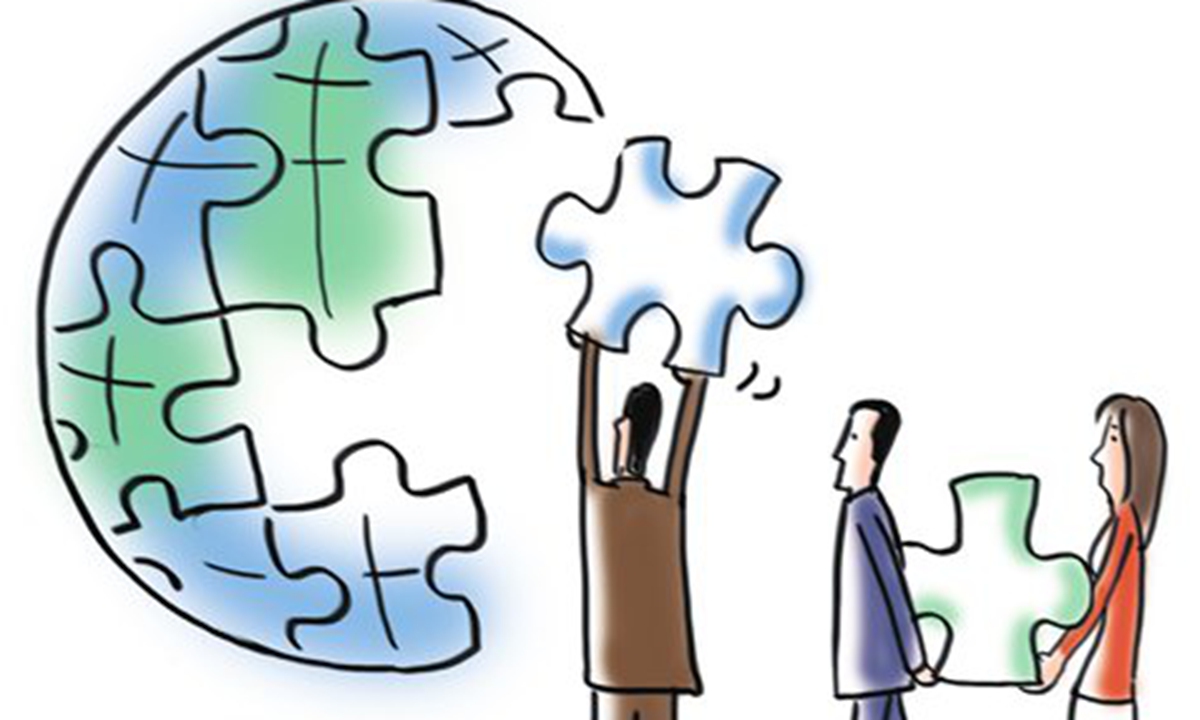
Illustration: Liu Rui/GT
The war between Russia and Ukraine seems to be a conventional one, but the resort of economic sanctions as a weapon will certainly create more far-reaching effects than a conventional war would. The sanctions will impact globalization, damaging developing economies and causing humanitarian disasters.
Although globalization has not gone backward and will not come to a 180-degree turnaround as some Western scholars have predicted, it will certainly have implications. To what degree is still difficult to predict.
The economic sanctions launched by the US-led Western countries have gone far beyond the embargoes adopted by some countries in previous wars against the opposing party and they are using the new international financial system and its rules that have emerged in the process of globalization to hit the target countries. And this system and rules have so far been essential to drive globalization forward.
The vast number of developing economies, including China, while enjoying the benefits of globalization, will lose their trust in the system and its rules because there is a hegemonic logic in the existing system that they cannot grasp, predict, or participate in, leaving them in a subordinate and passive position.
Even if such sanctions are not directed against developing economies, they are of such a huge scale and can cause global economic disruption. The current food and energy crises are an example. Additionally, sanctions will force global participants to draw lines and take stances according to the political will of the dominant players. So, the brutality of sanctions and the political motives of the major imposers both slowly erode trust in the system.
Nobel laureate Paul Krugman addressed this issue in his op-ed "Will Putin Kill the Global Economy?" published in the New York Times on April 8, 2022. The English title of Krugman's article, which was translated into Chinese with the addition of "China" to become "Will Russia and China Kill the Global Economy?", highlights the China threat theory that is surging in Western public opinion.
According to the Nobel laureate, China's COVID response, which was highly successful in the pandemic's initial stages, is becoming an increasing source of economic disruption. He blames this on China's authoritarian politics, saying that such authoritarian politics is likely to lead to a flight of foreign capital and foreign companies ceasing to buy from China.
Western political principles are steadily eroding the foundations of trust in the global economic and financial system. It is not just the Russia-Ukraine conflict that is forcing globalization to turn around, but also the economic and financial system that the US has dominantly built in the post-war period, a system that is increasingly exclusive and militarized. The rise of nationalism and right-wing forces in the US and the West has accelerated this politicized process of de-globalization.
China is a beneficiary of globalization and an even more active force in promoting it. The same is true for many emerging economies, who will be hit hard by the West's de-globalization. But after losing trust in the existing system, they will not accept the reality as adversely as they did in the past.
The emerging economies have no more options, and facing the new challenges of globalization, there is no way, but by going forward, they must stop being subordinate to the current system.
What kind of globalization do we need? This has become a real question that many developing countries have to consider. More developing countries will be active in building new rules to secure industries and supply chains through cooperation.
They will fight to bring globalization back, globalization that is not controlled by the West. A big game about the future of globalization is about to begin.
The author is a senior editor with People's Daily, and currently a senior fellow with the Chongyang Institute for Financial Studies at Renmin University of China. dinggang@globaltimes.com.cn. Follow him on Twitter @dinggangchina




